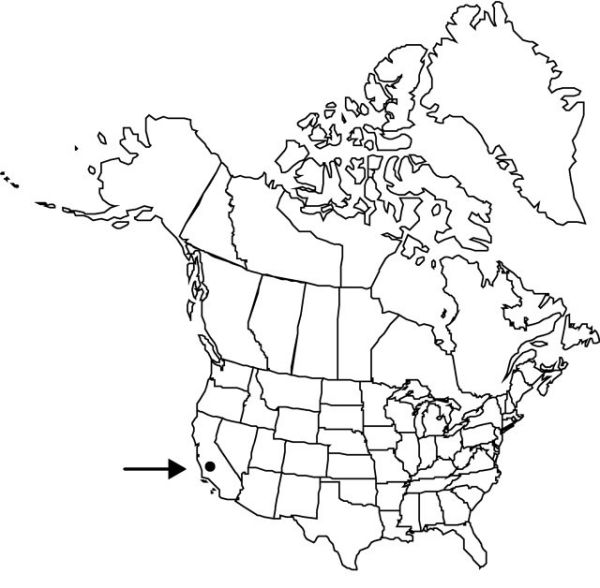Difference between revisions of "Chlorogalum purpureum var. reductum"
Leafl. W. Bot. 10: 121. 1964.
FNA>Volume Importer |
imported>Volume Importer |
||
| Line 8: | Line 8: | ||
}} | }} | ||
|common_names=Camatta canyon amole | |common_names=Camatta canyon amole | ||
| + | |special_status={{Treatment/ID/Special_status | ||
| + | |code=E | ||
| + | |label=Endemic | ||
| + | }}{{Treatment/ID/Special_status | ||
| + | |code=C | ||
| + | |label=Conservation concern | ||
| + | }} | ||
|basionyms= | |basionyms= | ||
|synonyms= | |synonyms= | ||
| Line 48: | Line 55: | ||
|publication title=Leafl. W. Bot. | |publication title=Leafl. W. Bot. | ||
|publication year=1964 | |publication year=1964 | ||
| − | |special status= | + | |special status=Endemic;Conservation concern |
| − | |source xml=https:// | + | |source xml=https://bibilujan@bitbucket.org/aafc-mbb/fna-data-curation.git/src/bb6b7e3a7de7d3b7888a1ad48c7fd8f5c722d8d6/coarse_grained_fna_xml/V26/V26_616.xml |
|genus=Chlorogalum | |genus=Chlorogalum | ||
|species=Chlorogalum purpureum | |species=Chlorogalum purpureum | ||
Revision as of 23:19, 27 May 2020
Panicles 1–2 dm.
Phenology: Flowering May–Jun.
Habitat: Serpentine woodlands
Elevation: 600 m
Discussion
Of conservation concern.
Chlorogalum purpureum var. reductum is known only from two localities in the La Panza Range, South Coast Ranges. The California Native Plant Society considers it to be endangered throughout its range, the California Department of Fish and Game has designated it rare, and the U. S. Fish and Wildlife Service has listed it as threatened.
This variety seems to be identical to Chlorogalum purpureum var. purpureum except for its compact, dwarf habit of growth. The two are generally distinct in their extreme forms, but may intergrade. In his original description of var. reductum, Hoover noted that the two varieties retain their distinctive habits when grown in a common garden. However, fertile seeds are produced when they are crossed artificially.
Selected References
None.
